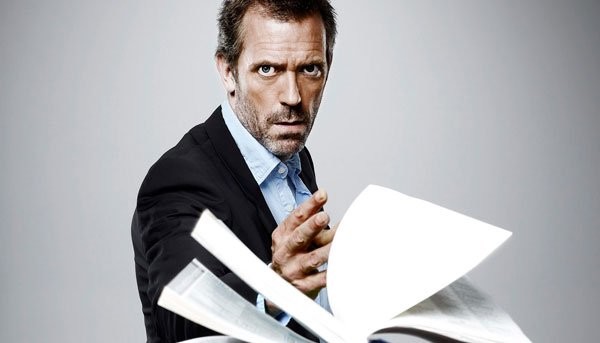
One Smart Way To Solve Tough Problems: Don't Bully Your Brain
"It is my belief, you see, that thinking is a double phenomenon like breathing." — Issac Asimov
In the classic TV series House, Dr. House's uncanny ability to problem solve usually occurred at the most unlikely of moments. Whether sitting in the hospital cafeteria or mid-sentence in conversation, he experienced those "Aha" moments when he did not outwardly appear to be focusing on the problem at hand. This was curious (and entertaining) — but we really shouldn't be surprised as to why this happened. In fact, we are all a little like Dr. House, as our own minds function in exactly the same way. If you focus too long and too hard on a stubborn problem without adequate rest, you'll likely come up unsuccessful. When you finally allow yourself the opportunity to change gears and rest, a solution may appear. The mind works in curious ways — but we often work against its strengths.
In the 1971 essay The Eureka Phenomena, Issac Asimov explores why moments of inspiration occur when we least expect them. Asimov's explanation is really quite simple: Human thought includes both voluntary and involuntary components, and opportunities for both are often required to become maximally effective.
Essentially, while we focus on one activity consciously, we are still ruminating on other topics below.
The basic premise of The Eureka Phenomena sheds light on how we might become more effective at work. As we tire while focusing intently upon one problem or topic, there can be diminishing returns. In fact, walking away from our most stubborn challenges (at least for a time) might serve as the best option. Asimov would explain that involuntary thought was not allowed to operate — and that contributed to our failure. He recollects that when he was in the midst of a stubborn problem, he would shift his focus and "shuffle" off to the movies. Ultimately, this action allowed him to work through his challenge. (Similarly, Asimov recounts the story of Archimedes. A visit to the public baths provided the opportunity for a "Eureka" moment, that allowed him to discover how to measure the volume of an irregularly shaped object.)
There are millions of us who have the responsibility of processing information concerning people, places and things for a living. Many knowledge workers attempt to identify patterns and problem solve, weighed down by countless meetings, conversations and deadlines. (Read more from Josh Bersin about overload here). During the course of a typical day at the office, an individual may complete a multitude of activities that are outwardly productive. However, the power of the mind has not maximized — as there are relatively few opportunities to rest and digest.
While processing information, we may not produce a physical output, yet our minds are hard at work. You may not perceive fatigue, yet your mind may actually be exhausted. Rest of some form is required. In these moments, the brain may find the energy required to engage in the involuntary mechanisms that Asimov describes. Even at rest, recent research has shown that our brains continue the quest to connect the dots.
Integrating periods of rest while you work on key problems is critical. You may find that a walk or meditation works for you. (See how many accomplished individuals took daily walks here.) You might listen to your favorite pieces of music, read your favorite cartoons, game — but offer your brain the "down time" it needs. Whatever the activity you ultimately choose, the process is of no less importance. If you find yourself stressed and tired while working on a problem, take a moment to relax. As stated by researcher Dr. Barry Gordon of Johns Hopkins at Time, "The brain is trying to weave ideas together, even when you don't think you are thinking of anything."
Above all, remember that the brain cannot be bullied into becoming effective. It must be respected and nurtured. Focus is important — yet you must also offer rest. Identify those activities that accomplish this, and build them into your day, when needed.
Above all — don't feel guilty if you feel the need "shuffle off" to the movies.
What activities help you "clear your head" and solve tough problems? Share them here.
*********
Note: A form of this post has appeared previously in The Office Blend
Dr. Marla Gottschalk is an Industrial/Organizational Psychologist.

Assistant Director (Procurement) at Nigerian Investment Promotion Commission Headquarters
7yAbove all, remember that the brain cannot be bullied into becoming effective.
Assistant Director (Procurement) at Nigerian Investment Promotion Commission Headquarters
7yYou might listen to your favorite pieces of music, read your favorite cartoons, game — but offer your brain the "down time" it needs
Assistant Director (Procurement) at Nigerian Investment Promotion Commission Headquarters
7yIntegrating periods of rest while you work on key problems is critical.
Deputy Director(Training) /Area Manager at Industrial Training Fund, Ikeja. Lagos NIGERIA
7yI get solutions sometimes while playing, engaging in a sport or chitchat. There is the toilet inspirations too
Enterprise IT Manager
7yYou make some great points! Thanks for sharing your thoughts!